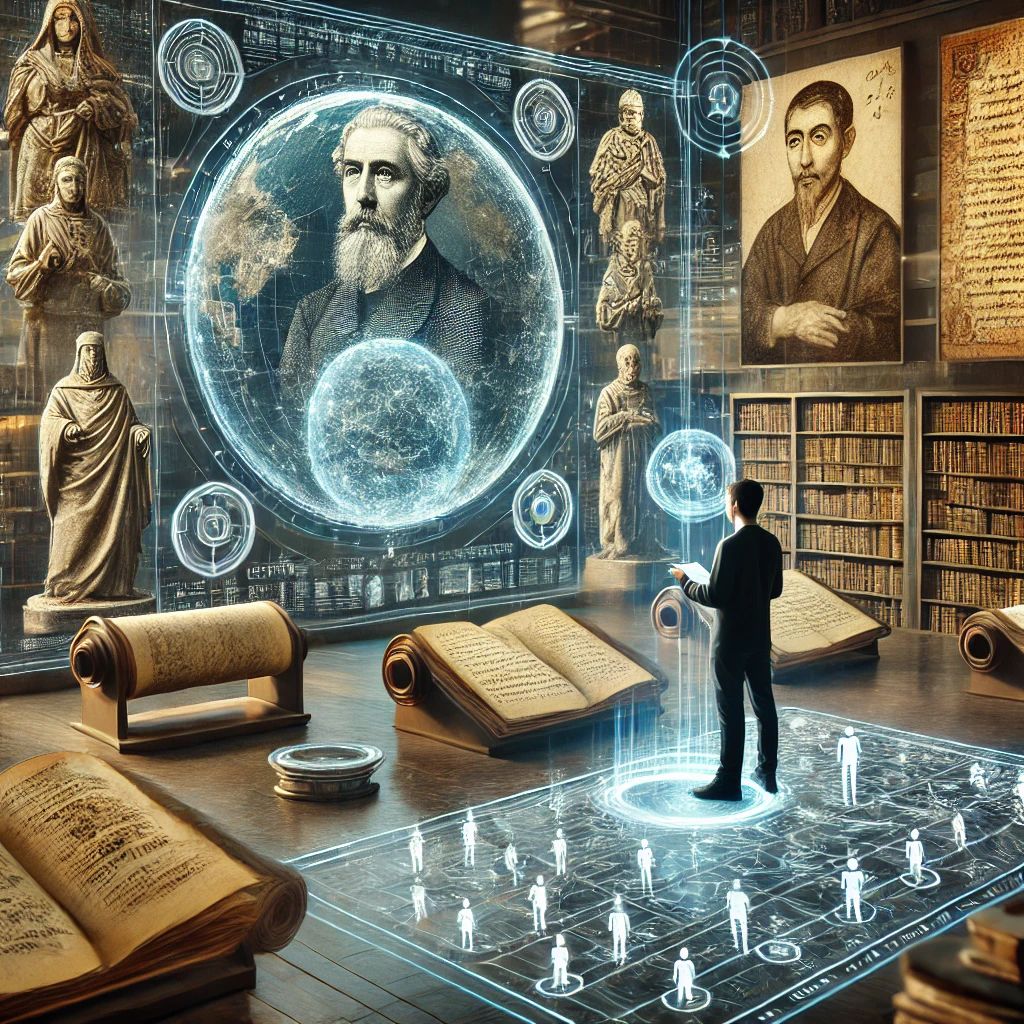
AI technology can help you explore historical events, timelines, and details in various ways. Here’s how you can use AI to study history:
1. AI-Powered Historical Research
- Chatbots & AI Assistants – Tools like ChatGPT can summarize historical events, analyze historical texts, and answer questions based on vast databases.
- Google Bard & Bing AI – These AI models can pull historical data from the internet in real time.
2. AI for Timeline and Chronology Analysis
- AI-powered timeline generators – Tools like TimeGraphics or ChronoZoom use AI to create interactive timelines of historical periods.
- Wikipedia & AI integrations – AI can process and summarize historical records from sources like Wikipedia, Britannica, or archive databases.
3. AI in Historical Image & Text Analysis
- OCR (Optical Character Recognition) – AI tools like Google Lens or Tesseract can read and analyze ancient texts, manuscripts, and inscriptions.
- AI image restoration – Tools like DeOldify can colorize and enhance old photos, making historical visuals more accessible.
4. AI for Historical Simulations
- Machine Learning in Archaeology – AI helps analyze ruins, predict historical settlement patterns, and reconstruct ancient cities.
- AI-powered historical games – Games like Assassin’s Creed use AI to reconstruct ancient worlds based on historical data.
5. AI for Personalized Historical Learning
- AI-driven education platforms – Tools like Khan Academy and Coursera use AI to tailor history lessons to your interests.
- AI-powered search engines – Tools like Elicit or Perplexity AI can find relevant historical research papers and sources.
6. AI for Fact-Checking and Historical Accuracy
- AI-driven misinformation detection – AI tools like GPTZero and FactCheck.org help verify historical claims and identify false narratives.
- AI in digital archives – The National Archives and UNESCO use AI to categorize and digitize historical documents.
Would you like recommendations for a specific AI tool for historical research?
No Responses